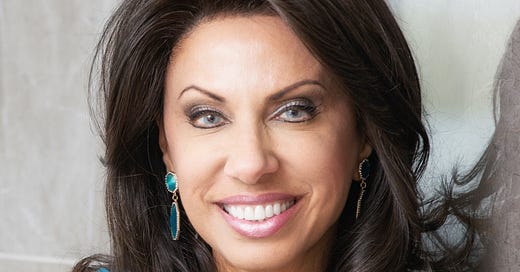Christine Reagan | 1-10-2025
During President Barack Obama's tenure from 2009 to 2017, his administration implemented policies that were markedly different in addressing the threats posed by radical Islam. One significant change was the deliberate avoidance of terms like "Islamic extremism" in official government language, aiming to separate the religion of Islam from acts of terrorism. This linguistic shift was intended to prevent the stigmatization of Muslim communities but was met with criticism for potentially downplaying the religious motivations behind terrorist acts by groups like ISIS and al-Qaeda.
John Brennan, Obama's CIA Director from 2013 to 2017, was a central figure in shaping these policies. Brennan advocated for a comprehensive strategy that included counter-narrative efforts and community engagement to prevent radicalization. His conversion to Islam, reportedly during his time in Saudi Arabia, has been a point of contention. Critics argue this might have led to a softer approach towards radical Islam, while supporters see it as enhancing his ability to understand and navigate the complexities of counterterrorism. His influence was evident in initiatives like "Countering Violent Extremism" (CVE), which focused more on social prevention than military response, raising concerns that it might sidestep the ideological roots of terrorism.
Brigitte Gabriel, founder of ACT for America, became a notable critic of these policy shifts. Known for her stance against radical Islam, Gabriel, a Lebanese-American survivor of the Lebanese Civil War, had been an influential speaker at various government and law enforcement training sessions before the Obama era. Her work focused on educating about the ideological underpinnings of radical Islam. However, during Obama's presidency, there was a marked reduction in her involvement in these educational programs. Critics of the administration's policies argue this was part of a broader move to exclude voices like Gabriel's, who were seen as too critical of Islam or too aggressive in their stance against radicalization.
This exclusion extended beyond Gabriel to other experts like Stephen Coughlin, who were sidelined for their views on Islamic law and its security implications. Some saw the cancellation or alteration of seminars that featured these experts as an attempt to craft a narrative that avoided linking Islam directly with terrorism, which they believe left government agencies less prepared to understand and counter radical Islamic threats effectively.
Moreover, the Obama administration's focus on community engagement, particularly through initiatives like CVE, aimed at reducing radicalization through social and economic programs, was criticized for possibly diluting the focus on the ideological motivations of terrorism. The emphasis on civil liberties and avoiding religious profiling was also seen as potentially weakening traditional intelligence-gathering methods crucial for monitoring radical groups.
The Obama administration's policy changes regarding radical Islam were characterized by a shift towards a less confrontational, more inclusive approach. This included redefining terms, restructuring intelligence operations, and altering training methodologies to minimize the association of terrorism with Islam. Critics argue that while these policies aimed at fostering a more inclusive environment, they might have compromised the depth of understanding and preparedness needed to effectively counter the ideological threats posed by radical Islamic terrorism, especially by sidelining figures like Brigitte Gabriel, whose insights were once considered vital in these discussions.
Undoubtedly, the recent terror attack in New Orleans, coupled with the poor judgment in not ensuring proper barriers to protect Bourbon Street in the French Quarter, starkly illustrates that we are not taking Islamic terrorism seriously enough. When public correctness trumps public safety, the consequences can be disastrous. This incident underscores the need to return to a security-focused dialogue unhindered by political sensitivities. Let's hope that champions for National Security, like Brigitte Gabriel, who is willing to expose the undeniable violent side of Islam truthfully, will be given a public voice again soon. Otherwise, more attacks like this are imminent and will be unpreventable as our defenses remain weakened by an unwillingness to confront the reality of the threat we face.
Don’t Miss Out on Our 2025 America First Celebration Half-Off Discount! for New and Returning Subscribers for a Limited Time.
WE DEPEND ON YOUR SUPPORT! With your annual subscription, RECEIVE YOUR FREE COPY of my NY Times Bestseller, ‘Because They Hate,’ while supplies last. You are delivering REAL RESULTS with your support!






To try and change the wording to make radical islam look like it isn't evil is simply the enemies attempt at camouflaging the truth so people don't see or hear it. Doesn't change the fact that its evil and that their purpose isn't to become good US citizens, their purpose is to multiply their numbers so they can out populate the US and take it over to turn it into an islamic hell hole with their sharia law. That's what I like about Bridgett, she doesn't mince words, she knows the truth and tells it like it is. I was speaking to an Israeli Orthodox lady several years ago and mentioned I wouldn't want to be a muslim who tried to tangle with Bridgett, that woman can put them in their place and do it with a smile. Only fools wouldn't listen to her advice on the subject, but hey fools just defined the Obama/Biden and Biden/Harris administrations. I hope Pres Trump will seek her advice for the sake of our nation. Bridgett and her family will always have my support.